
Kappa Kappa Psi’s ritual is a cornerstone of brotherhood‚ embodying musical excellence and service. It unites members through shared values‚ fostering leadership and camaraderie‚ while honoring its legacy.
Overview of the Fraternity and Its Purposes
Kappa Kappa Psi‚ established in 1919‚ is a student service and leadership society dedicated to supporting college bands and fostering musical excellence. Its primary purpose is to promote the advancement of band and music education‚ while strengthening bonds among its members. The fraternity emphasizes service to bands‚ encouragement of musical growth‚ and the development of leadership skills. Through its programs and activities‚ Kappa Kappa Psi aims to create lifelong educational experiences and opportunities for personal and professional growth. Its structured approach to brotherhood and service ensures that members contribute meaningfully to their communities and the music profession‚ shaping the future of music education.
Significance of Rituals in Kappa Kappa Psi
The rituals of Kappa Kappa Psi hold profound significance as they embody the fraternity’s values‚ fostering unity and purpose among its members. These ceremonies serve as a bridge between past and present‚ preserving the organization’s legacy while inspiring future generations. Rituals provide a framework for personal growth‚ emphasizing leadership‚ service‚ and musical excellence. They create a shared identity‚ strengthening the bond of brotherhood and commitment to the fraternity’s mission. By participating in these sacred traditions‚ members are reminded of their responsibilities to uphold the ideals of Kappa Kappa Psi‚ ensuring its continued impact on music education and band service for years to come.
History of Kappa Kappa Psi Rituals
Kappa Kappa Psi’s rituals trace back to its founding‚ reflecting its commitment to music and brotherhood. These ceremonies have evolved over time while maintaining their core purpose and significance.
Origins and Evolution of the Ritual
The origins of Kappa Kappa Psi’s ritual trace back to its founding in 1919 by William A. Scroggs‚ emphasizing music‚ service‚ and brotherhood. Early rituals were simple‚ focusing on initiation and unity. Over time‚ the ceremonies evolved to incorporate symbolic regalia‚ structured dialogues‚ and meaningful traditions. The fraternity’s commitment to musical excellence and leadership shaped the ritual’s content. Historical events‚ such as the adoption of official insignia‚ marked significant milestones in its development. Today‚ the ritual blends historical roots with modern practices‚ ensuring its relevance while honoring its legacy. The Ritual and History Team oversees updates‚ preserving its core values.
Key Historical Events Shaping the Ritual
Key historical events have profoundly influenced the evolution of Kappa Kappa Psi’s ritual. The fraternity’s founding in 1919 laid the groundwork for its ceremonial practices‚ emphasizing music and brotherhood. The post-World War II era brought significant changes‚ including the formalization of rituals and the adoption of official insignia. The 1960s and 1970s saw increased focus on inclusivity and diversity‚ reflected in ritual updates. In 2021‚ the fraternity introduced virtual rituals to adapt to modern challenges‚ ensuring continuity while maintaining tradition. These events have shaped the ritual into a dynamic yet timeless expression of Kappa Kappa Psi’s values and legacy.
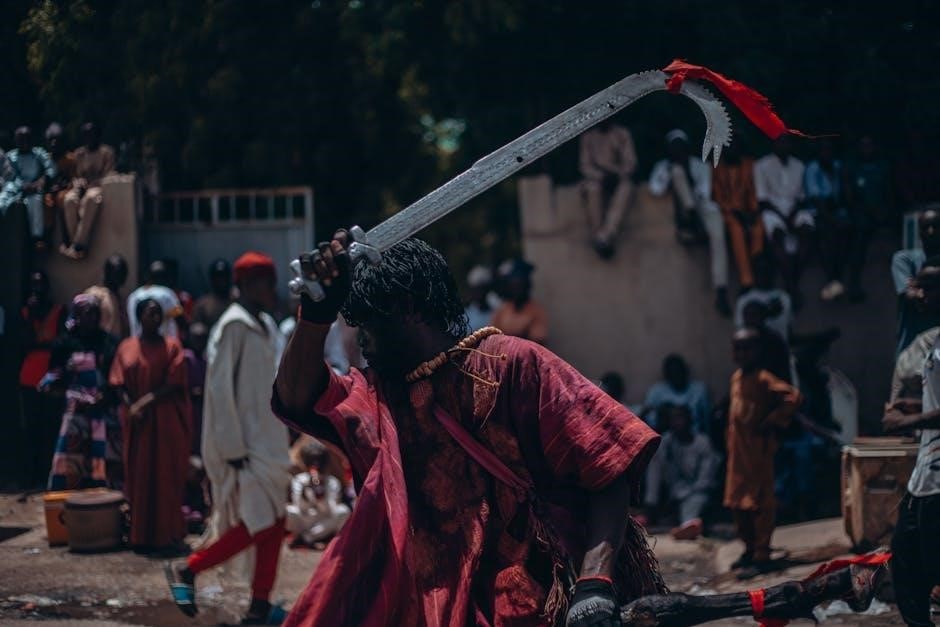
Structure of the Initiation Ritual
The initiation ritual is meticulously structured‚ beginning with preparation and setup‚ followed by ceremonial stages that symbolize transformation and commitment. Official regalia is worn to signify unity and tradition.
Preparation and Ceremony Setup
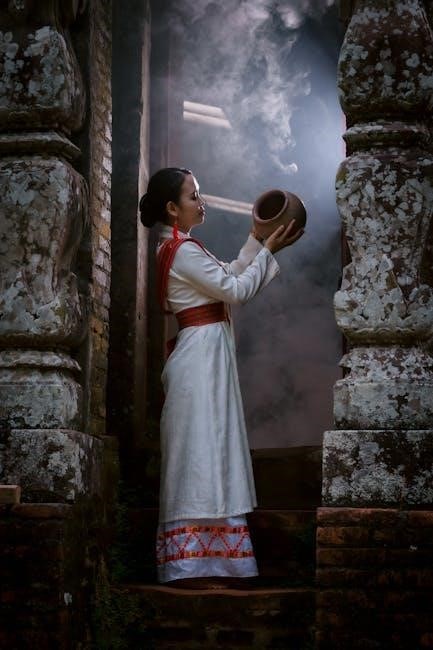
The initiation ritual begins with meticulous preparation‚ ensuring the ceremony space is transformed to reflect the fraternity’s values. Officers‚ such as the Strategus‚ verify the room’s readiness‚ while members don official regalia. Symbols and insignia are carefully placed to underscore the ritual’s significance. The Polemarch leads the setup‚ ensuring alignment with tradition. Candidates are briefed on the ceremony’s gravity and confidentiality. This structured preparation fosters an atmosphere of reverence and unity‚ setting the stage for a transformative experience that honors Kappa Kappa Psi’s legacy and commits new members to its principles.
Stages of the Initiation Process
The initiation process of Kappa Kappa Psi is divided into three degrees‚ each symbolizing a progression in understanding the fraternity’s values. The First Degree introduces candidates to the fraternity’s history and purposes‚ emphasizing service to bands. The Second Degree delves into the principles of brotherhood and leadership‚ while the Third Degree culminates in the revelation of sacred rituals and the final oath of membership. Each stage is conducted with solemnity‚ ensuring candidates grasp the fraternity’s mission and commitments. The process is designed to foster personal growth and dedication‚ preparing new members to contribute meaningfully to the fraternity and the band community.
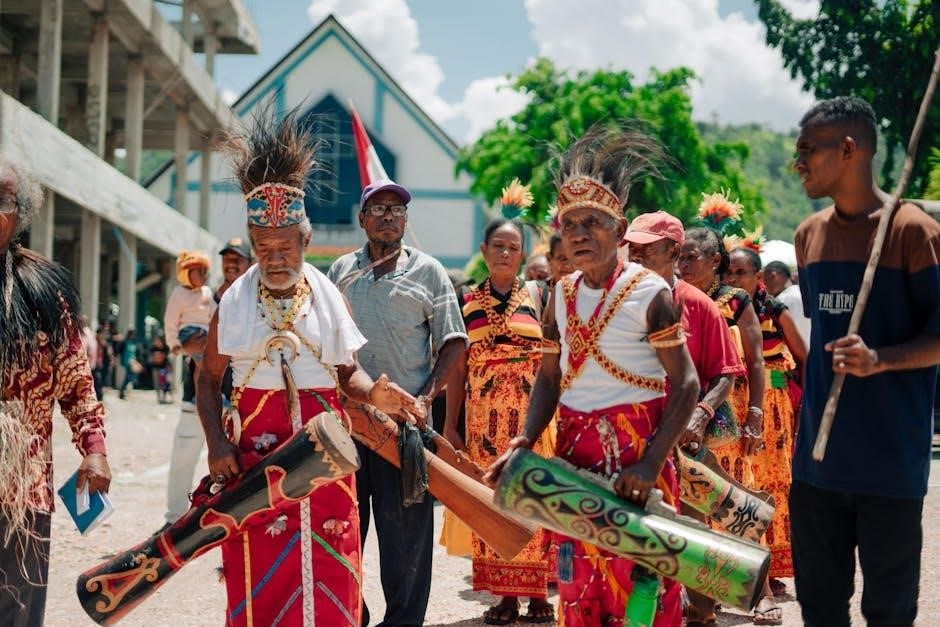
Symbols and Regalia in the Ritual
The badge‚ featuring a lyre‚ symbolizes music and brotherhood. Official regalia‚ including robes and insignia‚ reflects the fraternity’s heritage and commitment to service and excellence.
Meaning Behind the Kappa Kappa Psi Badge
The Kappa Kappa Psi badge is a symbolic representation of the fraternity’s mission and values. Its design features a lyre‚ signifying music and the arts‚ and a scroll inscribed with the fraternity’s name‚ representing scholarship and leadership. The badge also incorporates the fraternity’s colors‚ blue and white‚ which embody loyalty and purity. It serves as a tangible connection to the fraternity’s heritage and is worn with pride during rituals and official events. The badge is a unifying emblem‚ reminding members of their commitment to service‚ musical excellence‚ and brotherhood. Its meaning is deeply intertwined with the fraternity’s purpose and identity.
Role of Official Insignia and Regalia
The official insignia and regalia of Kappa Kappa Psi hold profound symbolic significance‚ representing the fraternity’s values and traditions. The badge‚ featuring a lyre and scroll‚ embodies music and scholarship‚ while the fraternity’s colors‚ blue and white‚ signify loyalty and purity. Regalia‚ such as caps‚ gloves‚ and sashes‚ are worn during rituals to create a unified and formal appearance. These items are essential for maintaining the dignity and solemnity of ceremonies‚ fostering a sense of shared identity among members. They also serve as visual reminders of the fraternity’s mission to advance musical excellence and provide service to bands.
Traditions and Ceremonies
Kappa Kappa Psi’s traditions and ceremonies honor its musical heritage‚ fostering unity and purpose through rituals like annual heritage workshops and celebrations‚ emphasizing service and brotherhood.
Annual Heritage Workshops and Celebrations
The Annual Heritage Workshops and Celebrations are vital events in Kappa Kappa Psi‚ fostering a deep understanding of the fraternity’s history and traditions. These gatherings‚ organized by the Ritual and History Team‚ educate members on the fraternity’s legacy‚ rituals‚ and core values. Workshops often include interactive sessions‚ historical presentations‚ and discussions on the significance of rituals. Celebrations highlight musical performances‚ ceremonies‚ and reflections on the fraternity’s impact. These events strengthen brotherhood‚ unify chapters‚ and ensure the continuation of Kappa Kappa Psi’s traditions. They also honor the fraternity’s mission of service‚ leadership‚ and musical excellence‚ inspiring members to uphold its legacy.
Importance of Music and Band Service in Rituals
Music and band service are integral to Kappa Kappa Psi rituals‚ reflecting the fraternity’s commitment to musical excellence and support for collegiate bands. Rituals often incorporate musical performances‚ symbolizing unity and shared purpose among members. The fraternity’s dedication to band service is evident in its rituals‚ which honor the hard work and dedication of band members. Through music‚ rituals celebrate achievements‚ strengthen bonds‚ and inspire members to continue their service to bands. This blend of music and tradition underscores Kappa Kappa Psi’s mission to promote and support the advancement of the music profession‚ making it a unique and meaningful aspect of fraternity life.
Secrecy and Confidentiality in the Ritual
Kappa Kappa Psi rituals emphasize strict confidentiality‚ safeguarding sacred traditions. Members pledge oaths to protect secrets‚ ensuring rituals remain exclusive and respected‚ upholding fraternal integrity and trust.
Oaths and Promises Made During Initiation
During initiation‚ members of Kappa Kappa Psi take solemn oaths‚ committing to uphold the fraternity’s values and secrecy. These promises are deeply personal and binding‚ ensuring loyalty and dedication. The vows emphasize service to bands‚ musical excellence‚ and brotherhood. Initiates pledge to honor the fraternity’s traditions and maintain confidentiality regarding rituals. These oaths are a cornerstone of membership‚ fostering trust and unity among brothers. By swearing these promises‚ members integrate into the fraternity’s legacy‚ vowing to contribute positively and uphold the organization’s mission. The oaths are a lifelong commitment‚ reflecting the fraternity’s enduring principles and shared identity.
Consequences of Sharing Ritual Secrets
Sharing Kappa Kappa Psi ritual secrets can lead to severe repercussions‚ including loss of membership and damage to the fraternity’s trust. Breaching confidentiality violates the oaths taken during initiation‚ undermining the sacred bond among brothers. Such actions may result in disciplinary measures‚ legal consequences‚ and harm to the fraternity’s reputation. Members who disclose confidential information risk facing expulsion and being barred from future involvement. The fraternity emphasizes the importance of upholding secrecy to protect its legacy and ensure the rituals remain meaningful and exclusive to initiated members. This commitment to confidentiality is essential for maintaining the integrity and unity of the brotherhood.

Modern Adaptations of the Ritual
Kappa Kappa Psi has embraced virtual rituals and incorporated technology to maintain tradition while ensuring safety and inclusivity. These adaptations preserve the ritual’s essence for modern members.
Virtual Ritual Experiences and Their Impact
Virtual rituals have revolutionized Kappa Kappa Psi’s traditions‚ ensuring continuity during challenges like the pandemic. These experiences maintain the sacredness of the ritual while offering flexibility and safety. Members can participate remotely‚ preserving the fraternity’s legacy and values. The shift to virtual platforms has also enhanced accessibility‚ allowing more brothers to engage. Despite the digital format‚ the emotional and symbolic significance remains intact‚ fostering unity and commitment. This adaptation underscores the fraternity’s resilience and ability to evolve while honoring its core principles. Virtual experiences have set a precedent for future rituals‚ blending tradition with modern innovation to meet contemporary needs effectively.
Changes in Ritual Practices Over Time
Over the years‚ Kappa Kappa Psi’s rituals have evolved to reflect modern needs while preserving their core significance. Historical practices have been refined to align with contemporary values‚ ensuring relevance without compromising tradition. The fraternity has incorporated virtual ceremonies and updated materials to accommodate changing circumstances‚ such as the pandemic. Despite these adaptations‚ the essence of the rituals remains intact‚ emphasizing brotherhood‚ service‚ and musical excellence. The fraternity’s ability to innovate while honoring its legacy demonstrates its commitment to progress and unity. These changes ensure that Kappa Kappa Psi’s rituals continue to inspire and unite members across generations.
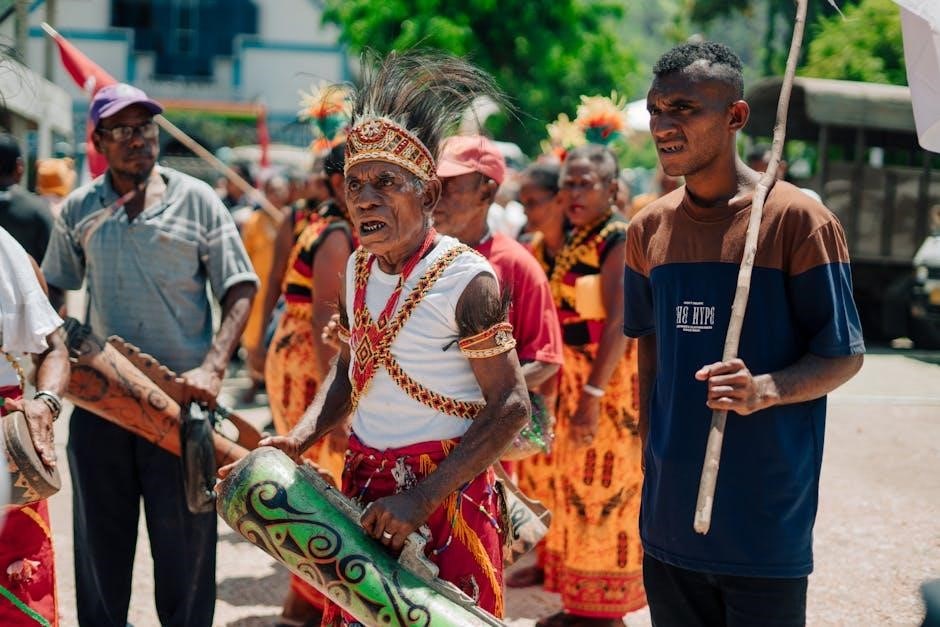
Educational and Leadership Aspects
Kappa Kappa Psi emphasizes leadership development through workshops and training‚ fostering personal growth and service excellence. Ritual education consultants guide members in mastering ceremonies and principles‚ enriching their fraternal experience.
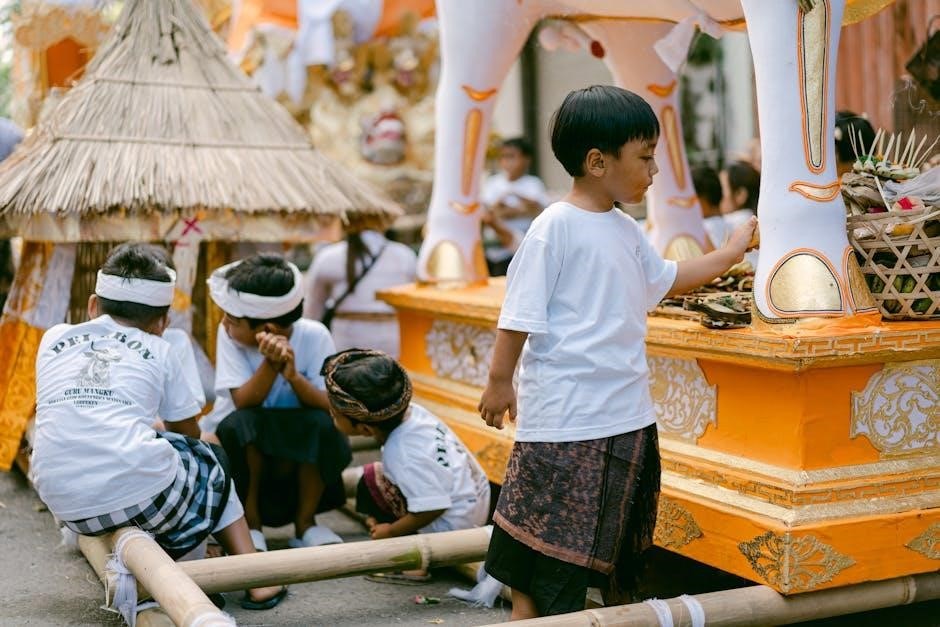
Ritual Education and Performance Consultants
Ritual Education and Performance Consultants play a vital role in preserving and enhancing the ritualistic traditions of Kappa Kappa Psi. These consultants provide expert guidance to chapters‚ ensuring rituals are performed with precision and meaning. They conduct workshops‚ offer resources‚ and lead virtual experiences to educate members on the significance of the fraternity’s ceremonies. Their efforts focus on fostering a deeper understanding of the ritual‚ promoting unity‚ and maintaining the integrity of Kappa Kappa Psi’s legacy. By blending tradition with modern practices‚ these consultants help chapters deliver impactful rituals that inspire brotherhood and commitment to the fraternity’s core values.
Workshops and Training for Members
Workshops and training programs are essential for Kappa Kappa Psi members to deepen their understanding of the fraternity’s rituals‚ history‚ and leadership principles. These sessions‚ often led by experienced consultants‚ cover topics such as ritual performance‚ chapter operations‚ and musical service. Interactive exercises and discussions help members connect with the fraternity’s values and traditions. Virtual workshops have also become popular‚ offering flexibility and accessibility. The goal is to empower members with the knowledge and skills needed to uphold the fraternity’s legacy while fostering unity and excellence. These educational initiatives ensure that Kappa Kappa Psi’s mission endures through informed and dedicated brotherhood.
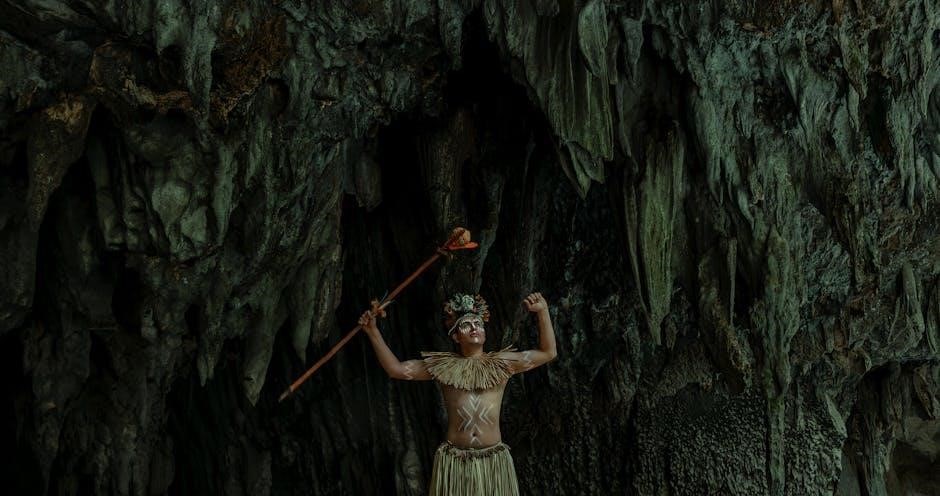
Role of Officers in the Ritual
Officers in Kappa Kappa Psi play pivotal roles in guiding rituals‚ ensuring ceremonies are conducted with precision and reverence‚ symbolizing leadership and unity within the brotherhood.
Duties of the Polemarch and Other Officers
The Polemarch‚ as the primary officer‚ leads the chapter with authority and wisdom‚ ensuring rituals are performed with integrity. They oversee ceremonies‚ maintain order‚ and uphold fraternity values. Other officers‚ such as the Vice Polemarch and Secretary‚ support the Polemarch by managing logistics‚ records‚ and communications. Together‚ they ensure the ritual’s sanctity and continuity‚ fostering a united and purposeful brotherhood. Their roles are essential in preserving tradition and guiding members through meaningful experiences that strengthen their commitment to Kappa Kappa Psi’s mission and ideals.
Ceremony for the Installation of Officers
The installation of officers in Kappa Kappa Psi is a solemn ceremony marking the transition of leadership. Conducted with dignity‚ it involves the outgoing officers symbolically passing their duties to the incoming leaders. The Polemarch presides over the ritual‚ ensuring continuity and adherence to tradition. Officers-elect recite oaths‚ pledging to uphold the fraternity’s values and lead with integrity. The ceremony reinforces the fraternity’s legacy and commitment to advancing the music profession‚ emphasizing the importance of leadership in fostering unity and excellence among members. It is a moment of reflection and renewal‚ celebrating the fraternity’s enduring spirit and purpose.
Brotherhood and Sisterhood in the Ritual
Kappa Kappa Psi’s ritual fosters camaraderie and unity‚ creating enduring bonds among members. Shared values and mutual respect are celebrated‚ strengthening the fraternity’s foundation of brotherhood and sisterhood.
Importance of Camaraderie and Unity
Kappa Kappa Psi’s ritual emphasizes camaraderie and unity‚ fostering a sense of belonging among members. Through shared experiences and collaborative efforts‚ members build lasting bonds‚ strengthening the fraternity’s foundation. Rituals encourage mutual respect and trust‚ creating a cohesive community. This unity is vital for collective growth‚ as it inspires members to support one another in pursuing musical excellence and service. By celebrating shared values‚ the fraternity cultivates a supportive environment where individuals thrive together. Camaraderie and unity are not just ideals but lived experiences‚ ensuring Kappa Kappa Psi remains a strong‚ harmonious brotherhood dedicated to its mission.
Role of Mentorship in the Ritual Process
Mentorship is integral to the Kappa Kappa Psi ritual process‚ guiding new members through initiation and fostering a deep understanding of fraternity values. Seasoned members act as mentors‚ providing support and insight‚ ensuring a seamless transition into brotherhood. This relationship strengthens bonds‚ promoting unity and shared purpose; Mentors also ensure rituals are performed with integrity‚ preserving tradition while adapting to modern needs. Their role is vital in nurturing leadership and musical excellence‚ ensuring the fraternity’s legacy endures through educated and dedicated members. Mentorship enriches the ritual experience‚ creating a foundation of knowledge and camaraderie essential for the fraternity’s continued growth and impact.
Challenges and Controversies
Kappa Kappa Psi has faced historical setbacks and modern challenges‚ adapting rituals to evolving values while maintaining tradition‚ ensuring the fraternity remains relevant and resilient in its mission.
Historical Setbacks and How They Were Overcome
Kappa Kappa Psi has navigated challenges such as declining membership and shifting campus cultures. By adapting rituals and emphasizing service‚ the fraternity revitalized its purpose‚ ensuring relevance and growth while preserving its core values and traditions.
Addressing Modern Challenges in Ritual Practices
Kappa Kappa Psi faces modern challenges such as adapting to virtual platforms and ensuring inclusivity. The fraternity has embraced technology to conduct secure virtual initiation ceremonies‚ maintaining the integrity of its rituals while keeping members safe during the COVID-19 pandemic. Additionally‚ efforts to modernize rituals without compromising tradition have been prioritized‚ ensuring relevance for contemporary members. Educational initiatives emphasize the importance of rituals‚ fostering a deeper understanding among new members. By balancing innovation with tradition‚ Kappa Kappa Psi continues to thrive‚ addressing modern demands while preserving its core values and legacy.
The Kappa Kappa Psi ritual remains a vital cornerstone of brotherhood‚ service‚ and musical excellence‚ inspiring future generations to uphold its legacy while embracing modern adaptations.
Final Thoughts on the Significance of the Ritual
The Kappa Kappa Psi ritual is a profound expression of brotherhood and shared purpose‚ deeply rooted in tradition and musical dedication. It serves as a unifying force‚ fostering commitment to excellence and service. By honoring its historical origins while adapting to modern challenges‚ the ritual ensures its relevance and vitality. It remains a cherished experience that binds members together‚ reinforcing the fraternity’s core values. The ritual’s enduring significance lies in its ability to inspire personal growth and collective achievement‚ ensuring that Kappa Kappa Psi continues to thrive as a beacon of leadership and musical advocacy.
Looking Ahead to the Future of Kappa Kappa Psi Rituals
The future of Kappa Kappa Psi rituals lies in blending tradition with innovation‚ ensuring their relevance in a modern world. Virtual experiences and adaptive practices will continue to play a role‚ maintaining the fraternity’s legacy while embracing new technologies. As the fraternity evolves‚ it will prioritize inclusivity and accessibility‚ fostering a culture of unity and shared purpose. By preserving its core values while addressing contemporary challenges‚ Kappa Kappa Psi will remain a vital force in musical excellence and brotherhood‚ inspiring future generations to uphold its traditions and contribute to its enduring impact on the music profession and beyond.




